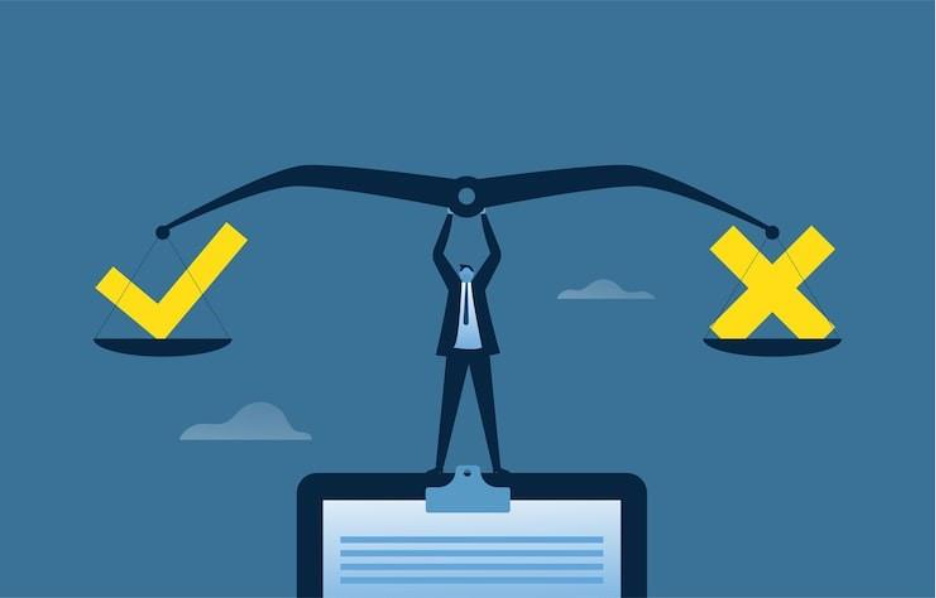
A background check verifies what’s true; due diligence investigates what’s possible.
In a world where business partnerships cross borders daily, that distinction defines compliance, credibility, and corporate integrity. Yet many companies still use the terms interchangeably, unaware of the risks in doing so. A background check focuses on verification — confirming facts, filings, and identities. A due diligence background check, however, investigates intent and influence — revealing who controls, benefits from, or hides behind a corporate structure.
This understanding is crucial to modern third-party risk management and corporate due diligence. With its blend of AI analytics and investigator-led intelligence, BusinessScreen.com helps organizations uncover the truth behind entities, executives, and ownership networks before making critical decisions.
A business background check is the foundational layer of risk verification. It validates identity, legitimacy, and integrity across critical data points such as registration, licensing, ownership, sanctions, and litigation records.
In the non-FCRA context, these checks are not employment screenings but corporate investigations. They confirm that a company is who it claims to be — and that its leaders are not tied to fraud, corruption, or regulatory breaches.
Consider a manufacturer evaluating a new overseas supplier. By ordering a corporate background check from BusinessScreen.com, compliance analysts review business registration, ownership records, and financial data. They uncover that a listed shareholder is connected to a previously debarred logistics entity, allowing the manufacturer to pivot before onboarding risk.
To see a step-by-step example, read How to Run a Background Check on a Business, which details how companies verify suppliers, partners, and investment targets across global markets.
Background checks form the first line of defense in due diligence and procurement workflows. They don’t just verify — they prevent costly mistakes before deals are signed.
Due diligence is the investigative process that begins where background checks end. It’s not just about facts — it’s about context. A due diligence background check evaluates structure, behavior, and long-term risk.
Unlike a basic background review that stops at public records, due diligence digs into financials, beneficial ownership (UBO), ESG standing, regulatory penalties, and local market reputation. It integrates field intelligence, media analysis, and political exposure screening (PEP checks) to create a complete picture of a company’s credibility and compliance posture.
For example, BusinessScreen.com routinely performs enhanced due diligence for financial institutions and private equity firms to meet AML and FCPA mandates. Each investigation combines data aggregation with human analysis — confirming not only what’s true on paper but what’s hidden beneath it.
For a detailed overview, explore What Is a Due Diligence Background Check and Why Do One and Company Due Diligence: What It Is and Why It’s Crucial.

While both background checks and due diligence background checks are pillars of responsible business screening, their objectives differ significantly.
As Harvard Business Review explains, “modern due diligence transforms static verification into predictive compliance intelligence,” empowering companies to foresee risk instead of reacting to it.
A background check is best for lower-risk engagements — verifying vendors, contractors, or routine partnerships. It’s the right choice when exposure is minimal, such as onboarding local service providers or renewing long-standing relationships.
A due diligence investigation, however, is essential when the stakes are high. Before a merger, investment, or cross-border partnership, companies need deeper insight into financial health, hidden ownership, and reputational standing.
BusinessScreen supports both processes seamlessly through its modular service structure. From Vendor Due Diligence for supply chain integrity to Commercial Due Diligence and Pre-Investment Due Diligence for M&A, every workflow adapts to the client’s risk threshold.
BusinessScreen.com combines background verification and due diligence investigation into one unified system, allowing organizations to scale compliance processes globally.
Its hybrid model blends AI-powered automation with investigator-led research, ensuring that every report balances efficiency with human judgment. Analysts validate corporate filings, cross-check sanctions and watchlists, and conduct localized verification through field partners in over 200 jurisdictions.
This model supports non-FCRA, AML, and ESG standards, enabling clients to maintain regulatory confidence and governance transparency. To understand how automation and expert intelligence intersect, visit Our Process.
A private equity fund once engaged BusinessScreen to assess a logistics firm in Southeast Asia before acquisition.
An initial background check confirmed corporate filings but raised questions about a director’s past sanctions exposure. BusinessScreen then initiated a due diligence background check, uncovering offshore entities, related-party transactions, and ongoing litigation in another country.
This discovery led to a renegotiated valuation — potentially saving millions. For similar insights, explore Private Equity’s Secret Sauce for LBO Candidate Screening and Investment Due Diligence.
Corporate due diligence differs from employee screening because it operates under non-FCRA regulations, governed instead by global trade, anti-corruption, and data privacy laws.
BusinessScreen.com delivers compliant non-FCRA background checks across jurisdictions, allowing organizations to evaluate ethical and regulatory risk safely. Its analysts also integrate ESG due diligence — reviewing environmental policies, governance frameworks, and social accountability — to align with emerging sustainability mandates.
For ready-to-use templates, see The Ultimate Due Diligence Checklist.
Leading compliance teams don’t treat due diligence as a one-time event. They integrate background checks and due diligence into an ongoing, layered framework that continuously monitors change.
Every relationship begins with verification — confirming legal status and ownership through a business background check. For high-risk cases, teams escalate to enhanced due diligence for financial, reputational, and political review. Continuous screening tools then track sanctions updates, litigation filings, and beneficial ownership changes, ensuring long-term oversight.
As Forbes notes, companies that adopt continuous due diligence gain measurable advantages in resilience, investor trust, and global market access. For deeper strategies, read Third-Party Risk Management Essentials.

The next frontier in business compliance is predictive due diligence — using AI and data science to anticipate risk.
BusinessScreen.com is pioneering this evolution by merging anomaly detection, cross-border data mapping, and investigative review. Its technology identifies patterns in financial behavior, ownership shifts, and reputational trends long before traditional sources do.
Predictive due diligence transforms compliance from a defensive task into a strategic advantage — where verification becomes foresight, and risk becomes opportunity.
The difference between a background check and due diligence is more than procedural — it’s philosophical. A background check confirms what’s true; due diligence prepares for what’s next.
When managed together through BusinessScreen.com, these processes create a continuous cycle of trust, transparency, and predictive insight.
Learn More: How to Conduct a Due Diligence Background Check
What’s the difference between a background check and due diligence?
A background check confirms factual accuracy — registration, ownership, and legal standing — while due diligence analyzes financial, ethical, and reputational exposure.
What is a due diligence background check?
It’s an enhanced investigation combining data verification, financial review, and field intelligence to reveal hidden risks and control structures.
When should each be performed?
Run background checks for standard verification. Conduct due diligence before major transactions, investments, or international partnerships.
How does BusinessScreen.com ensure compliance?
BusinessScreen provides non-FCRA, AML, and ESG-aligned due diligence investigations that meet international transparency standards.
Can small businesses use due diligence background checks?
Yes. Scalable solutions allow small and mid-sized businesses to verify investors, partners, and clients with the same depth as global enterprises.
In today’s compliance-driven marketplace, due diligence background checks are no longer optional—they’re essential. With BusinessScreen.com, organizations gain a partner that turns verification into vision, empowering smarter, safer business decisions across every market.